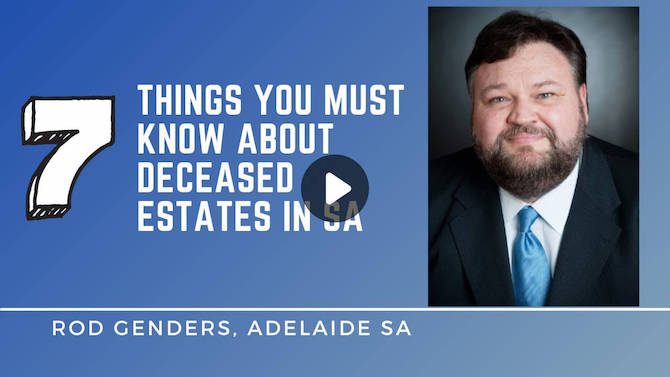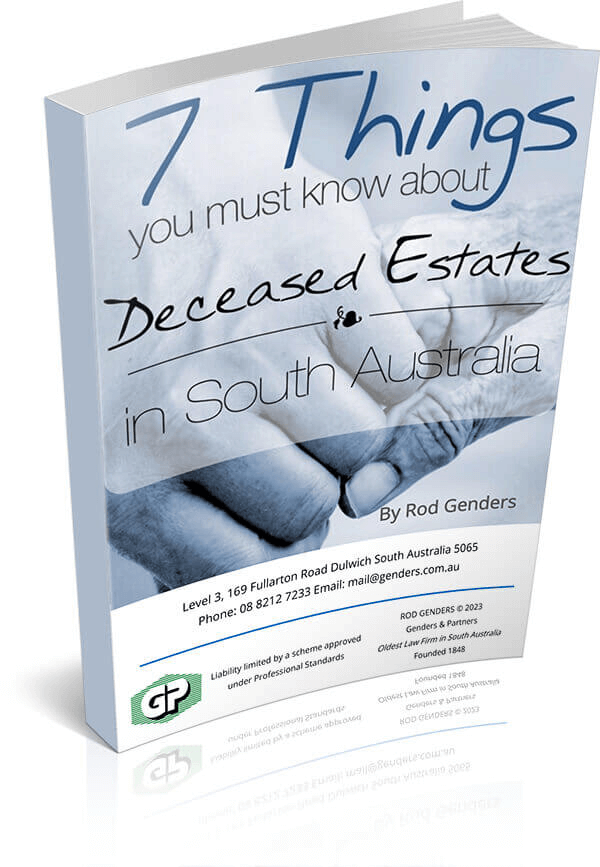Past

It’s been 40 years since Australia last imposed formal death duties (also known as Inheritance Tax) and 13 years since the Henry tax review (also known as Australia’s Future Tax System Review).
Now with all the pandemic payments being made by State and Federal Governments, all the treasurers are looking around for a convenient honeypot to raid.
Since the Baby Boomers are the ones with the assets, they are a logical target of Government ambition.
Baby Boomers could be asked to sell the family home when they die to pay for aged care costs under a plan to slap an effective death tax on seniors to fund care.
Former Treasurer Peter Costello has urged the Morrison Government to consider an expanded pensioner loans scheme during his last appearance at the Royal Commission into Aged Care.
Under the proposal, seniors would be given the option of taking out a loan secured against the family home, that would then be sold when they died or other assets liquidated.
While some banks already offer reverse home loans, Mr Costello has called for debate on expanding a pensions loans scheme to use the family home as an asset that could be sold when a retiree dies to recover costs.
With Australia’s rapidly ageing population, and the sheer weight of numbers of Baby Boomers as a disproportionate percentage of the total population, the Government has long believed that it is too great a burden to fund residential aged care from the taxpayer alone, so the Government wants to get private money into the system, just as they did with Refundable Accommodation Bonds, where seniors can raise that bond with their own house as security.
Former Treasury secretary Ken Henry told the same Royal Commission inquiry that he believes that a compulsory tax levy to fund aged care is necessary.
He also has formally recommended in favour of a ‘Bequest Tax’ which is another name for an Inheritance Tax – a tax that would be levied on the accumulated wealth of people at the time of their death.
It is worth noting that national inheritance taxes exist in many other countries, such as the Canada, USA. United Kingdom, Germany, Italy, Belgium, Ireland and France.
Present
Some Australians may not realise that, when you die, your tax bills do not just disappear, and that when you die, your estate becomes a new taxpayer – separate from your personal TFN.
Somebody (typically a family member) has responsibility to deal with your outstanding tax returns.
Up until the point of your death you are an individual taxpayer.
Once you die, someone takes control of your assets and holds them on your behalf in a trust.
To do this, they need to obtain a new Tax File Number (TFN) on behalf of your estate before they can even start dealing with your finances.
For people who have a left a valid Will, the person that fulfils this role after your death is the Executor.
While there are no formal death taxes in Australia currently, there is still an obligation to pay tax on the earnings and investments that had been held by the deceased.
This may include taxes on superannuation payouts (generally the ATO will tax super payouts to nominated beneficiaries at 15 per cent) and capital gains taxes owed on any investments such as shares or property.
Before that can even happen, a tax return is required if a dead person had taxable income higher than the tax-free threshold in the year that they died (in 2021 it is $18,200.
Future
The mass exit of Baby boomers is triggering the largest transfer of intergenerational wealth in Australia’s history.
Sadly, the vast majority of Australians are not prepared, according to some recent estimates which reveal that 76 per cent of Australians do not have a current Will, while 53 per cent of parents have not discussed their Will and legacy with their children.
The research also shows that, although the majority of parents wish their children would use their inheritance wisely and build for the future, the opposite is happening.
The rising costs of living, slow wage growth, the ‘gig-economy’ and a volatile property market is presenting a very different picture of wealth today than it was 30 years ago.
It is estimated that 70 per cent of families will lose their wealth by the second generation and 90 per cent will lose it by the third.
To offset risks of families losing their wealth, families need to have discussions around Wills and inheritance so all parties can be prepared and have a plan in place.
Many of us tend to shy away from discussing money amongst our families and friends, and we also don’t like to confront our own mortality.
However, as we approach the largest intergenerational wealth transfer in history with more than half of Australians expecting to inherit, Australians need to prioritise their estate planning to preserve wealth across generations.
The laws about Wills vary from State to State in Australia, and they also change from time to time. Most of the information on the internet is from other countries (especially America) which is not applicable in Australian States, and it tends to be very out of date.
If those mistakes weren’t enough, you should also consider that a Will alone is not the only document you need for an estate plan. Without an Advance Care Directive, power of attorney, trust, or guardianship you may not be providing for your family as you intend.
Contact the oldest law firm on South Australia – Genders and Partners, established 1848 – to learn more about retirement planning, superannuation, estate-planning and estate-administration solutions, by visiting our website today and schedule a free no obligation telephone consultation to find out how we can help you and yours.
Remember – any mistakes you make in your Will won’t become apparent until after you’re dead, and it’s too late for you to fix them. Get proper advice, and do it right.
It is also vitally important that you keep your Will and estate plan up to date – it is not a set-and-forget exercise.
To learn how to protect yourself, your family and your assets, by creating a professionally-made estate plan, claim your FREE 15 minute Telephone Consultation









